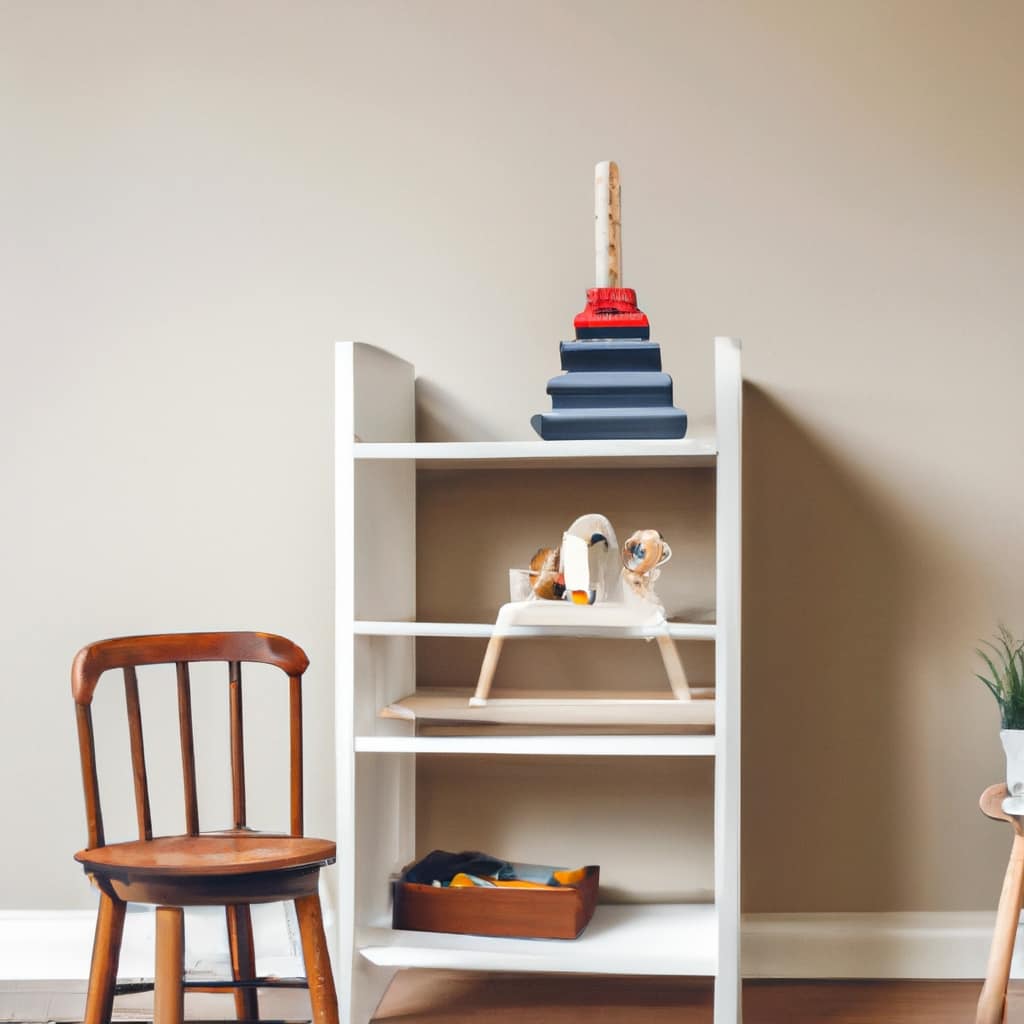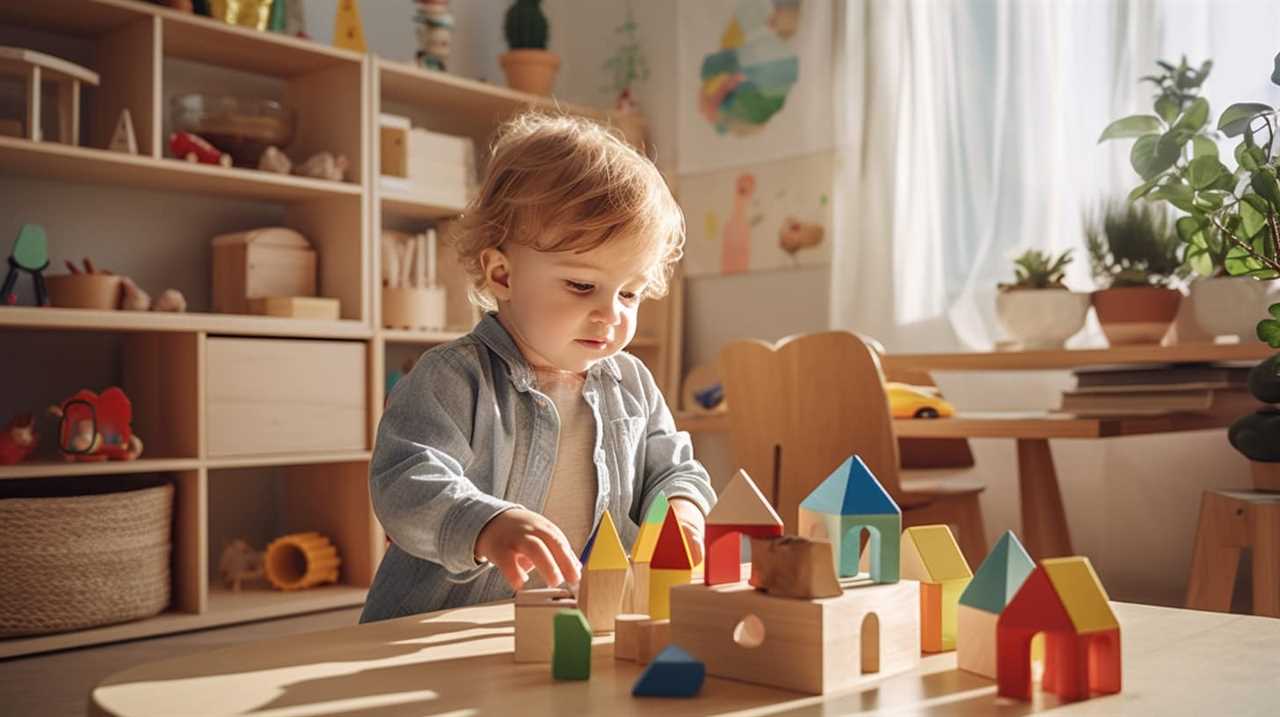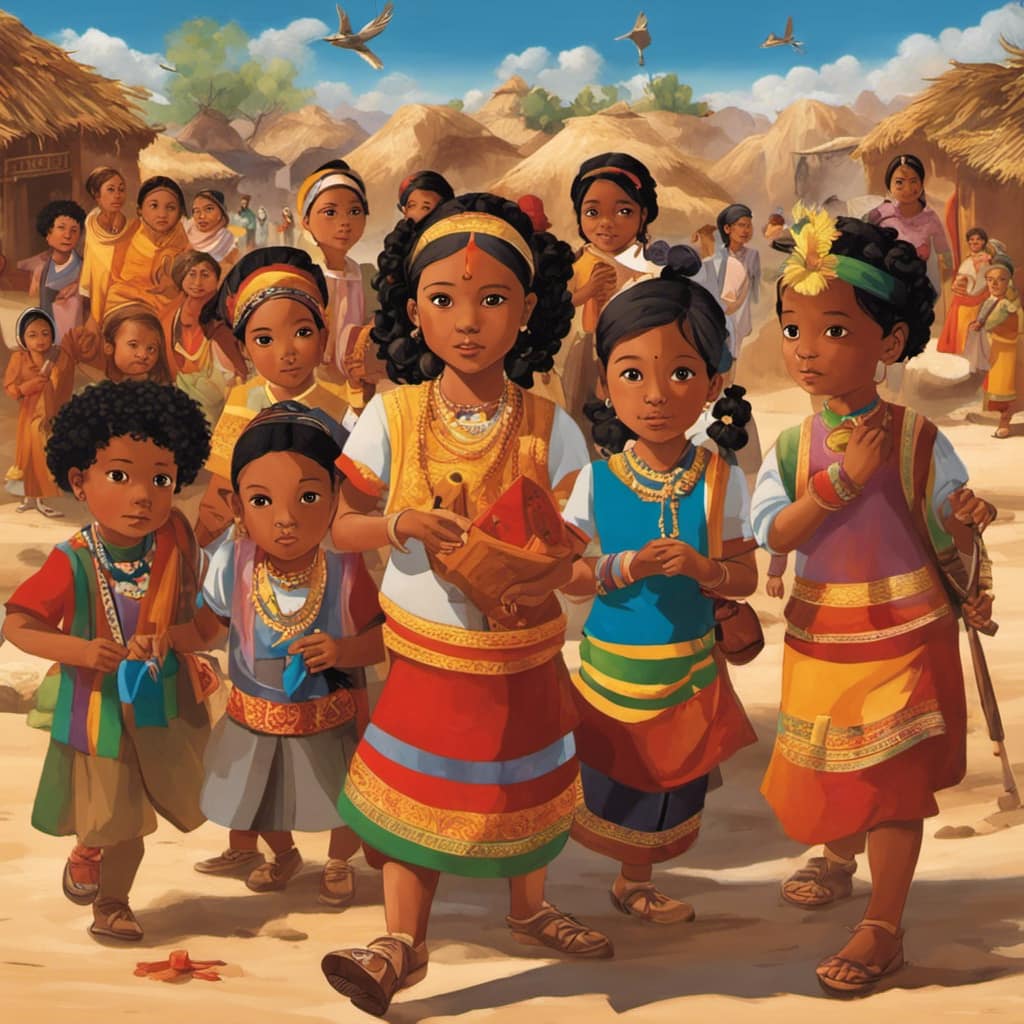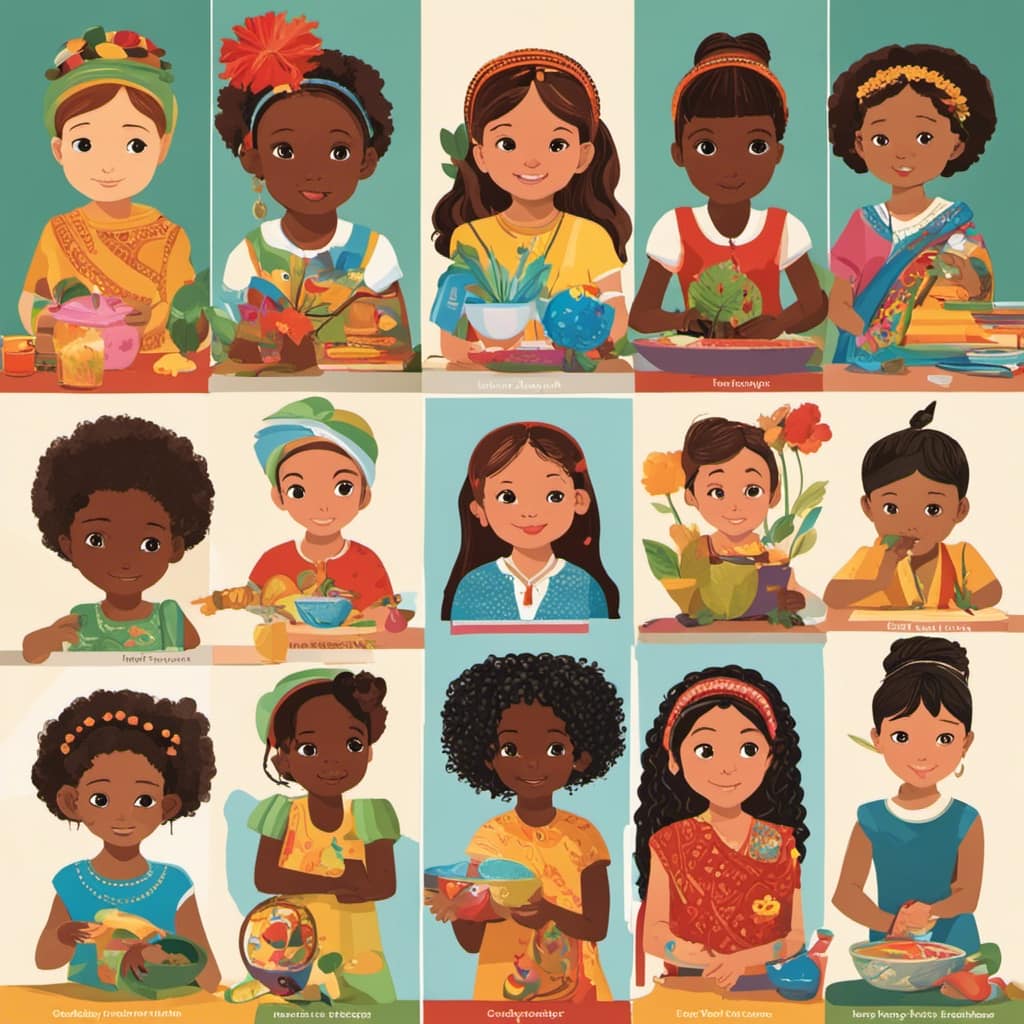Hi!
We’re here to help you choose the best eco-friendly Montessori learning toys for your little ones. With our 5 tips, you’ll be able to make informed decisions that prioritize the planet and your child’s development.
From considering materials used to focusing on durability and longevity, we’ll guide you through the process.
Let’s embark on this journey of serving both our children and the environment together!
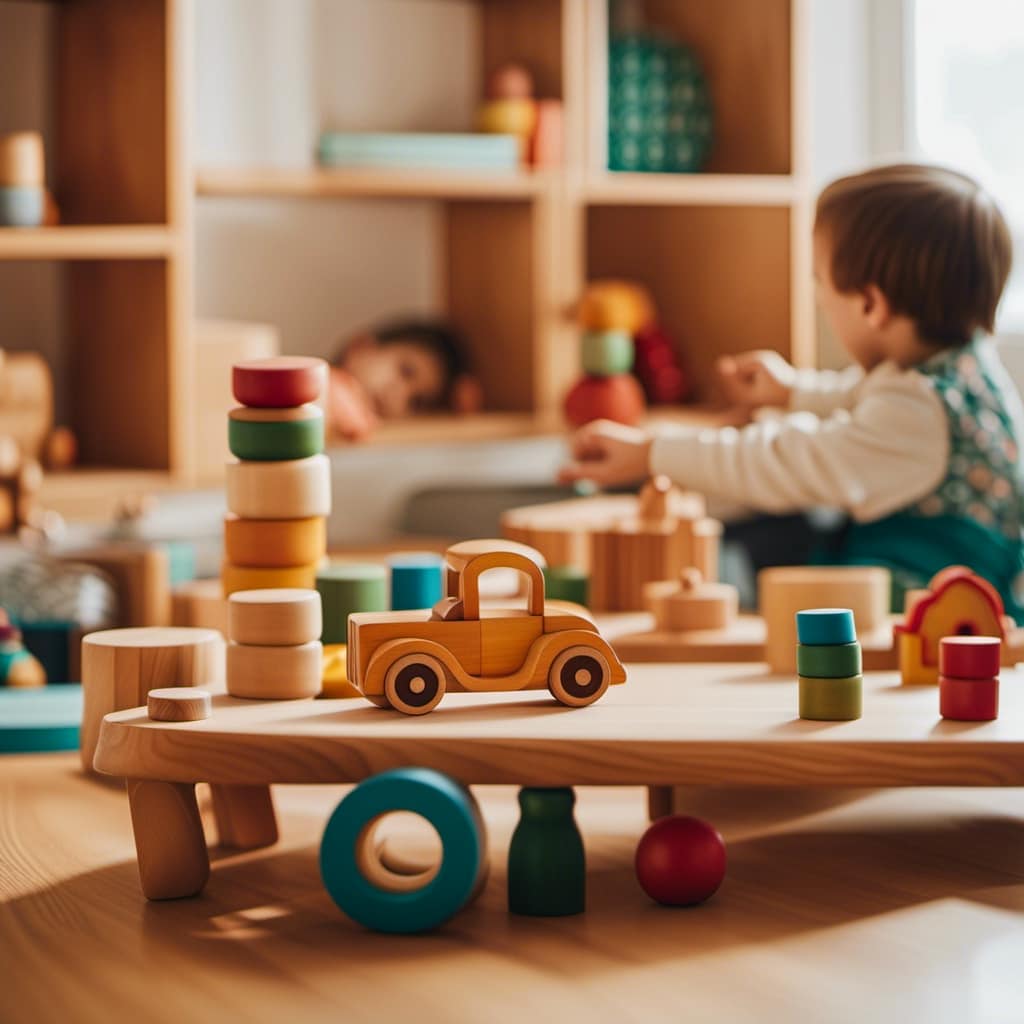
Key Takeaways
- Choose Montessori learning toys made from sustainable materials like bamboo, organic cotton, or recycled plastic to promote eco-conscious manufacturing practices.
- Prioritize non-toxic options for the safety and health of children by selecting toys made from natural wood, organic cotton, or recycled plastic and avoiding harmful chemicals like BPA, phthalates, and lead.
- Opt for Montessori learning toys made from sustainably sourced materials like FSC-certified wood or organic cotton to support ethical manufacturing practices, preserve natural resources, promote the local economy, and reduce carbon emissions.
- Select Montessori learning toys made from natural and renewable materials to reduce the carbon footprint, teach children about sustainability, connect them to nature, and promote reuse, repair, and waste reduction.
Consider the Materials Used
When choosing eco-friendly Montessori learning toys, we consider the materials used. It’s important to pay attention to the eco-conscious manufacturing practices employed by the toy manufacturers.
Look for toys made from sustainable materials such as bamboo, organic cotton, or recycled plastic. These materials not only reduce the environmental impact but also promote a healthier and safer play environment for our children.
Additionally, supporting fair trade initiatives is crucial in ensuring that the workers involved in the production of these toys are treated fairly and receive fair wages. By choosing toys that support fair trade, we’re contributing to a more just and equitable world.
Look for Non-Toxic Options
We prioritize non-toxic options when selecting eco-friendly Montessori learning toys. This is because we understand the importance of keeping our children safe and healthy while they play and learn.

When looking for non-toxic options, it’s essential to consider the materials used in the manufacturing process. Eco-friendly manufacturing practices ensure that the toys are made from sustainable and non-toxic materials, such as natural wood, organic cotton, or recycled plastic.
Choosing these materials not only benefits the environment but also promotes the health and well-being of our children. Non-toxic toys are free from harmful chemicals, such as BPA, phthalates, and lead, which can have adverse effects on children’s development.
Choose Sustainably Sourced Toys
To ensure sustainability, we prioritize selecting toys that are sourced responsibly. When choosing eco-friendly Montessori learning toys, it’s important to consider the ethical manufacturing practices and support local artisans.
Opting for toys that are ethically manufactured means they’re produced in a way that respects both the environment and the workers involved in the manufacturing process. Look for toys that are made from sustainable materials, such as FSC-certified wood or organic cotton. These materials are sourced responsibly, ensuring the preservation of natural resources.

Additionally, supporting local artisans not only promotes the local economy but also reduces carbon emissions associated with long-distance transportation.
Prioritize Natural and Renewable Materials
In prioritizing natural and renewable materials, our focus is on selecting toys made from materials that are both environmentally friendly and able to be replenished. By choosing eco-friendly alternatives, we not only reduce our carbon footprint but also teach our children the importance of sustainability.
Here are three reasons why prioritizing natural and renewable materials is beneficial:
-
Environmental impact: Natural materials such as wood, cotton, and bamboo have a lower environmental impact compared to plastic or synthetic materials. They’re biodegradable, non-toxic, and don’t release harmful chemicals into the environment.
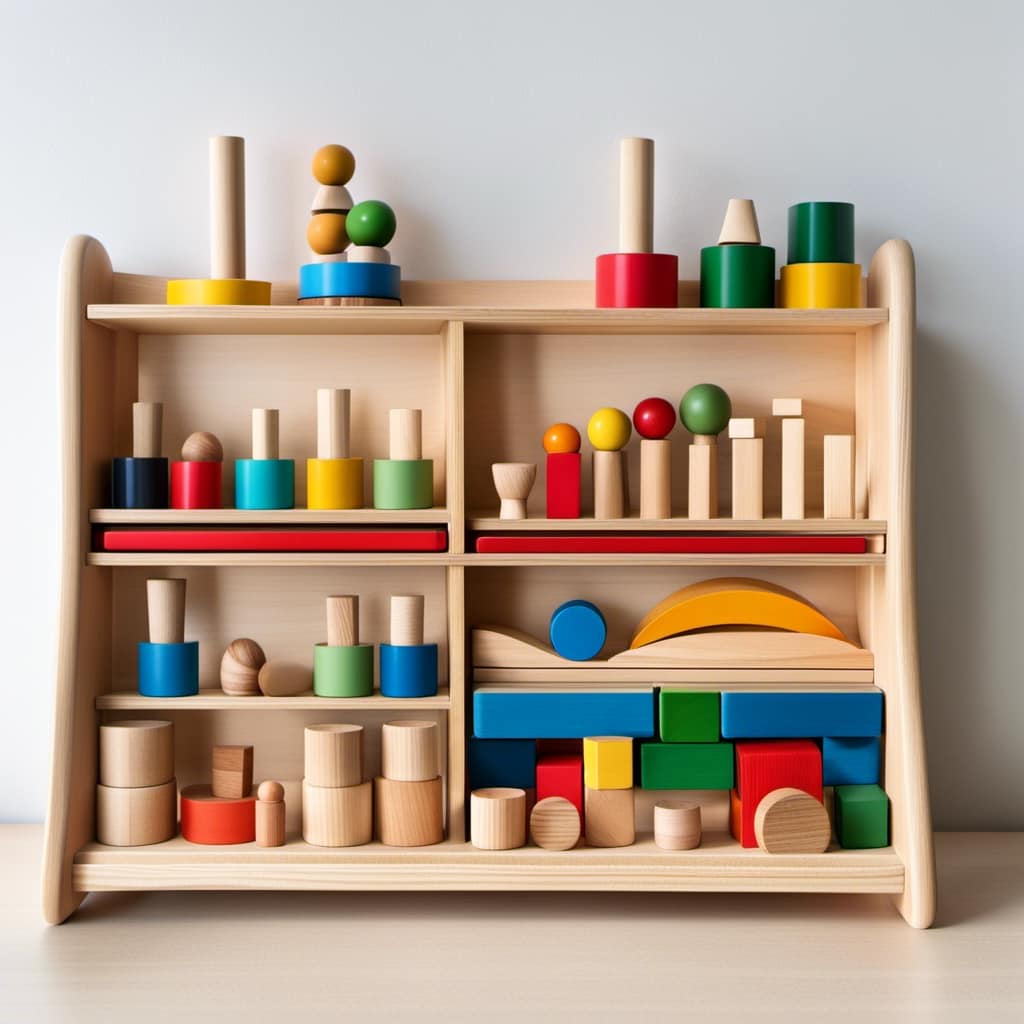
-
Connection to nature: Toys made from natural materials provide a tactile experience that connects children to the natural world. They can feel the texture of wood or the softness of cotton, fostering a deeper appreciation for the environment.
-
Durability and longevity: Natural materials are often more durable than their synthetic counterparts, ensuring that the toys can withstand rough play and last for generations. This reduces waste and encourages a culture of reuse and repair.
By prioritizing natural and renewable materials, we set the foundation for a sustainable future while providing our children with quality toys that promote creativity and imagination.
Now, let’s shift our focus to the next aspect: durability and longevity.
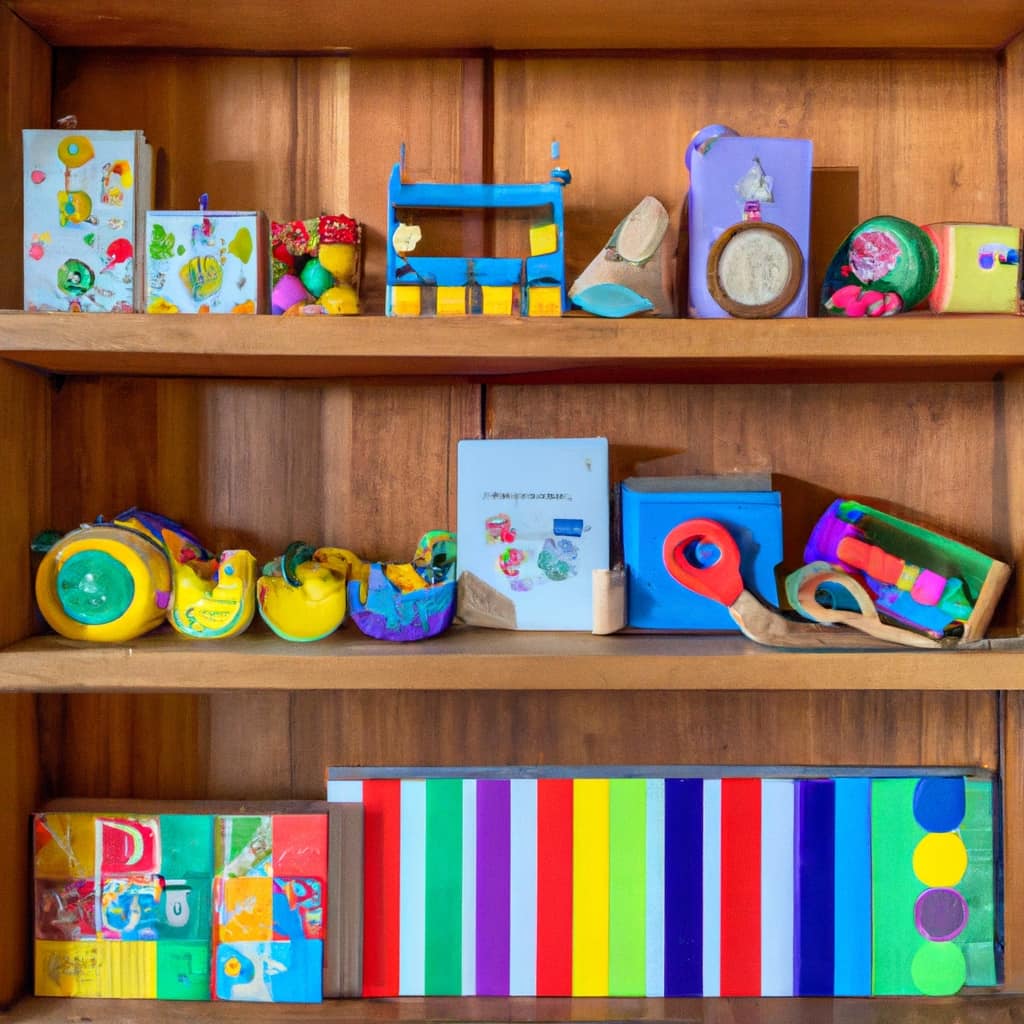
Focus on Durability and Longevity
Continuing our exploration of eco-friendly Montessori learning toys, let’s now delve into the importance of prioritizing durability and longevity.
When choosing toys for children, it’s crucial to consider their longevity to minimize waste and promote sustainability. Opting for toys made with eco-friendly manufacturing processes ensures that they aren’t harmful to the environment. Look for toys made from materials that are durable and can withstand the test of time.
By investing in high-quality toys, you can avoid the need for constant replacements and reduce waste. Furthermore, durable toys promote open-ended play, allowing children to explore their creativity and imagination. These toys can be used in various ways, encouraging children to think critically and problem-solve.
Prioritizing durability and longevity in Montessori learning toys isn’t only beneficial for the environment but also for the child’s development.
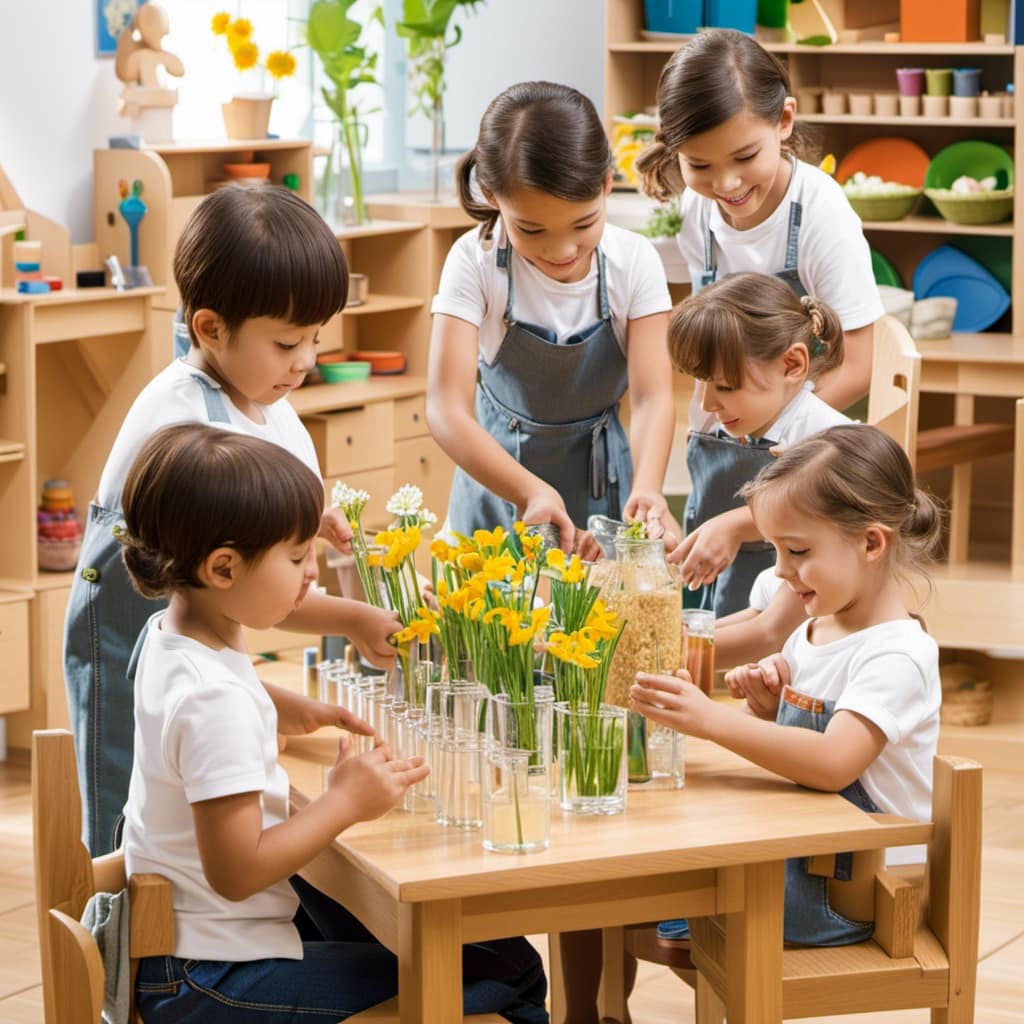
Frequently Asked Questions
Are There Any Specific Montessori Learning Toys That Are Recommended for Children With Allergies or Sensitivities to Certain Materials?
For children with allergies or sensitivities to certain materials, we recommend choosing Montessori learning toys that are made from hypoallergenic and non-toxic materials. Ethical sourcing of these toys ensures a safe and eco-friendly option.
How Can I Ensure That the Montessori Learning Toys I Choose Are Ethically Produced and Sourced?
To ensure the Montessori learning toys we choose are ethically produced and sourced, we can research the company’s values and certifications. We can also look for toys made from sustainable materials, like organic wood or recycled plastic.
Are There Any Specific Certifications or Labels That I Should Look for When Selecting Eco-Friendly Montessori Learning Toys?
When selecting eco-friendly Montessori learning toys, it’s important to look for certifications and labels that indicate non-toxic and sustainable materials. These help ensure that the toys are ethically produced and sourced.
Can You Provide Examples of Renewable Materials Commonly Used in Eco-Friendly Montessori Learning Toys?
Renewable materials like bamboo, organic cotton, and FSC-certified wood are commonly used in eco-friendly Montessori learning toys. These materials are sustainable, non-toxic, and promote a greener future for our children.
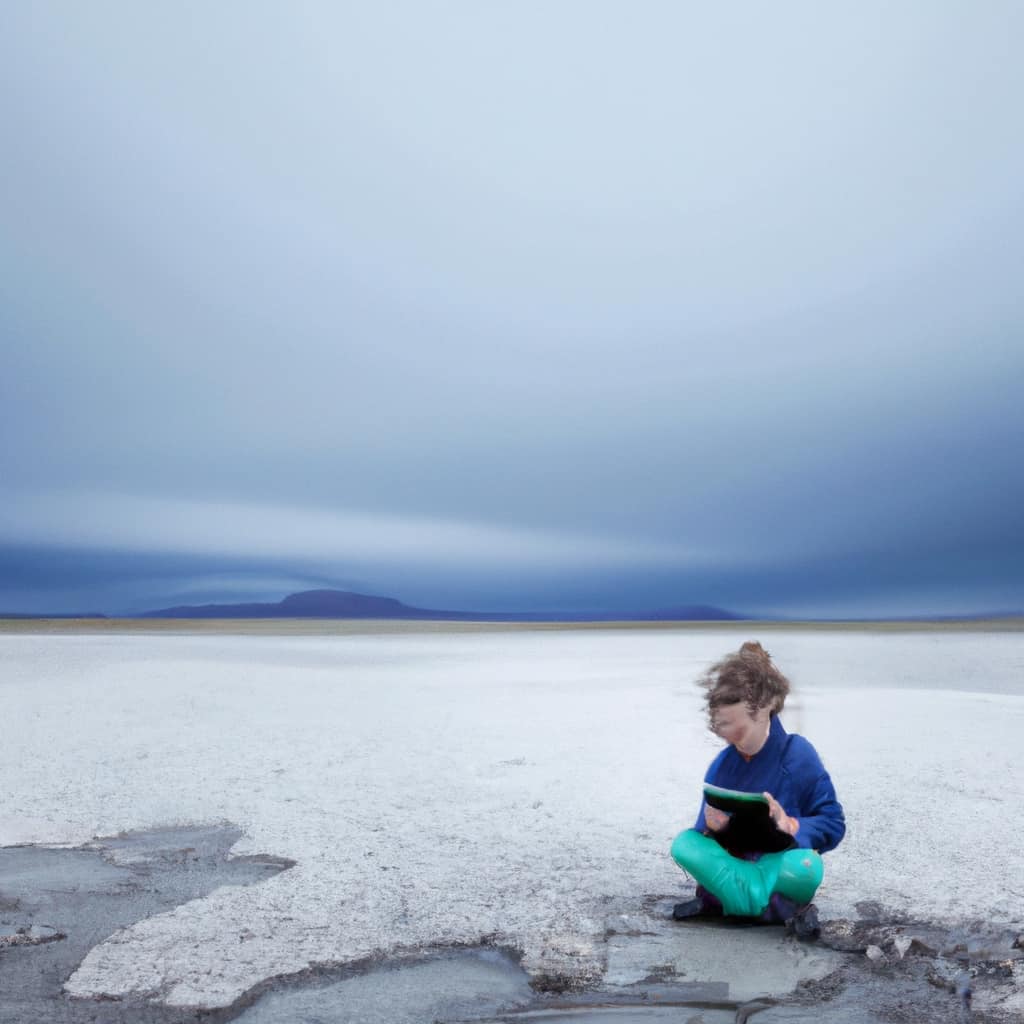
What Are Some Strategies for Encouraging Children to Take Care of Their Montessori Learning Toys to Ensure Their Durability and Longevity?
To encourage care for Montessori toys and ensure durability and longevity, we can implement strategies such as teaching proper handling, emphasizing the importance of cleaning and storing toys correctly, and setting up a designated toy care area.
Conclusion
In conclusion, when choosing eco-friendly Montessori learning toys, it’s important to consider the materials used, prioritize non-toxic options, and choose sustainably sourced toys.
By focusing on natural and renewable materials, we can ensure a healthier environment for our children. Additionally, prioritizing durability and longevity won’t only benefit the planet but also save you money in the long run.
So let’s make a conscious choice for a greener and brighter future for our little ones!


